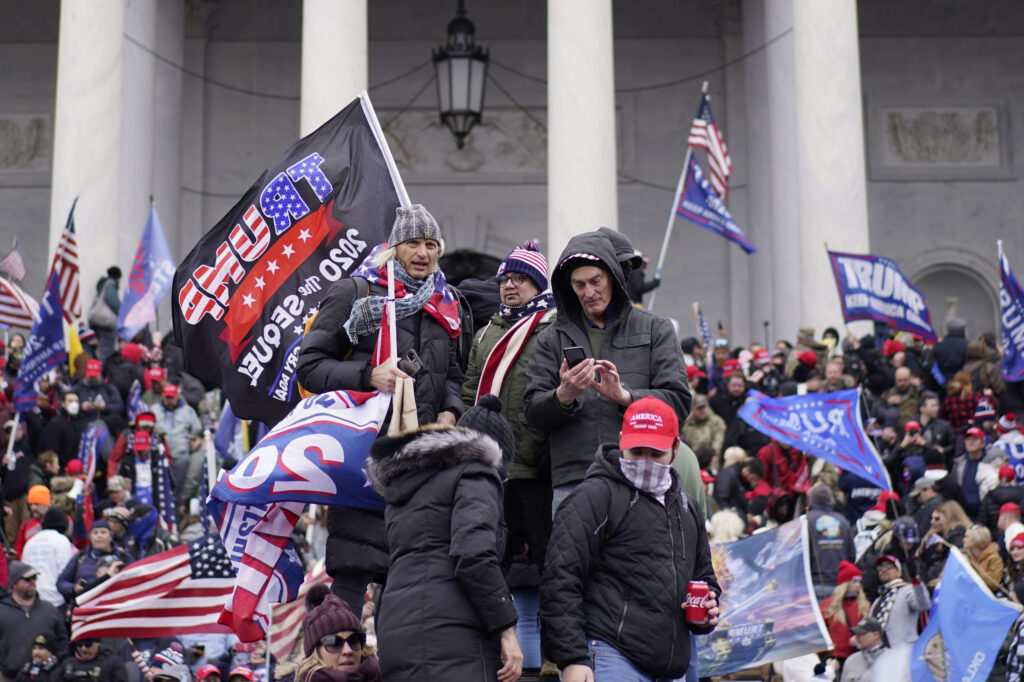The House on Wednesday voted to establish a commission to investigate the Jan. 6 storming at the U.S. Capitol, but the bill faces an uphill battle in the Senate amid Republican opposition.
The legislation was approved 252-175, with support from all House Democrats who voted and 35 Republicans, a significant number of defections on a bill GOP leadership opposed.

In the Senate, Minority Leader Mitch McConnell, R-Ky., opposes the bill to form the commission, calling it “slanted and unbalanced” and repetitive of work already underway by law enforcement and congressional entities. While a handful of Republicans have indicated they would buck McConnell, it is far from certain there would be enough of them to overcome a filibuster.
Majority Leader Charles E. Schumer, D-N.Y., has pledged the legislation will get a vote, even if it is doomed to fail.
The commission, modeled after the one set up after the terrorist attacks of Sept. 11, 2001, is tasked with investigating the events that led to the assault at the Capitol, including the preparedness of law enforcement and the factors that “fomented such an attack.”
“This Capitol of the United States has been a beacon of democracy for the world,” House Speaker Nancy Pelosi, D-Calif., said shortly before the vote. “The fact that it was assaulted on a day which the Constitution called for us to ascertain, to certify, the president of the United States as voted by the Electoral College and the American people, made that day especially, especially harmful to our democracy and our Constitution.”
The crafting of the commission has proved difficult amid partisan squabbling. Some Republicans have tried to broaden the scope of the panel to include the protests in summer 2020 after the murder of George Floyd at the hands of police.
Republican Rep. John Katko of New York brokered the deal with Democratic Rep. Bennie Thompson of Mississippi at the behest of House Minority Leader Kevin McCarthy, R-Calif. After Katko signed off on the agreement, McCarthy came out against it, arguing that the commission repeats work already being done by Congress and law enforcement and ignores other “political violence.”
Thompson said Republican and Democratic leaders were kept apprised of negotiations.
“It’s unfortunate that the minority leader has at the last moment raised issues that basically we had gone past and there was no issue on his part,” he said. “But I guess that’s politics.”
McCarthy and House Minority Whip Steve Scalise, R-La., did not formally ask members to oppose the commission legislation but issued a recommendation against it.
Katko, a former prosecutor, passionately urged lawmakers to support it. “I encourage all members, Republicans and Democrats alike, to put down their swords for once, just for once, and support this bill,” he said on the House floor.
The division among House Republicans on the issue comes at a difficult time in which their fissures are showing. Just last week they removed Rep. Liz Cheney, R-Wyo., from her role in leadership over her repeated statements that Trump played a role in inciting the attack. Many rank-and-file Republicans want to move on from talking about the events of that day.
Former GOP Rep. Zach Wamp of Tennessee, who supported the 9/11 commission and is a member of the National Council on Election Integrity, said the commission would help Republicans put the issue to rest.
“As a former hard-core conservative congressman, it is in leader McCarthy’s best interest to do this. It really is,” Wamp said on C-SPAN this week. “Go ahead, independently look at this, document it, go forward with the (proposed) changes. And then you don’t have to be so much on the defensive all the time.”
If ultimately approved, the group — five Republican appointees and five Democratic appointees — would be required to issue a report by the end of the year. Armed with subpoena power, the group would issue its findings and recommendations for corrective measures to prevent another attack at the Capitol or other American democratic institutions.
The group is expected to be made up of former law enforcement personnel, former members of Congress and policy experts who have backgrounds in counterterrorism, cybersecurity, technology, intelligence, civil rights and the military.
Former Rep. Tim Roemer, an Indiana Democrat who helped write the bill to create the 9/11 commission and later served on it, said he would expect the panel to also review the role social media and disinformation played in rallying people to attack the Capitol.
“Certainly they should have experts on this commission that understand the threat of lies and disinformation and propaganda like this harming our democracy,” citing the potential need for regulatory reforms. “It might be one of the most important contributions this Jan. 6 commission could make.”
If the bipartisan commission is not approved by Congress, Democrats have signaled they could establish a commission of lawmakers that would conduct an investigation. Pelosi said Wednesday she’s not interested in that approach.
“I certainly could call for hearings in the House with a majority of the members being Democrats, with full subpoena power, with the agenda being determined by the Democrats, but that’s not the path we have chosen to go,” she said.
___
© 2021 Los Angeles Times Distributed by Tribune Content Agency, LLC



